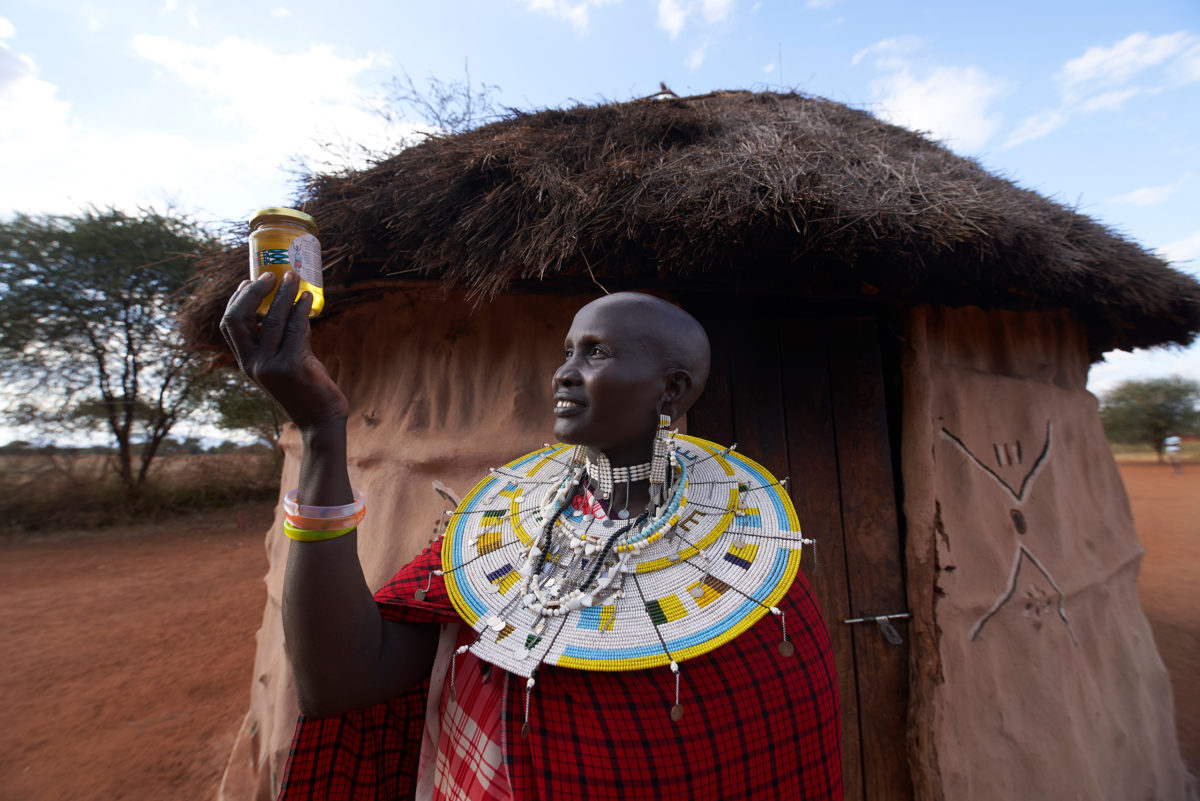The past 18 months have been a time of upheaval around the world, prompting a wide range of companies, institutions, and organizations to re-evaluate how they operate. The conservation sector has been no exception: Worldwide concern about injustice and inequity, the impacts of the pandemic, and the worsening effects of global environmental degradation has accelerated change in a field that has historically been relatively slow to evolve.
But for the shifts underway to be more than just a passing fad, many would argue that conservation requires fundamental structural changes that put more decision-making power in the hands of people who’ve been traditionally sidelined or ignored and recognize the importance of contributions from a wide range of stakeholders in achieving conservation outcomes.
One of the organizations working on both of these fronts is African People & Wildlife, a Tanzania-based NGO founded by Dr. Laly Lichtenfeld and Charles Trout that is headquartered on land donated by a local Maasai community. African People & Wildlife works across six landscapes in Northern Tanzania that are famed for their wildlife populations. The group runs several programs that range from supporting sustainable livelihoods in local communities to reducing human-wildlife conflict to empowering women conservation leaders.

Lichtenfeld told Mongabay in a recent interview that she’s seen significant changes in the conservation since she started African People & Wildlife in 2005, including recognition that “communities are essential partners in creating sustainable change” and “that we need to embrace diversity, equity, and inclusion in our work.” But the field still has further to go, she noted.
“While it’s encouraging to see these shifts happening across the conservation field, the hard part comes with taking concrete action and not turning back,” she said. “Currently, there are big questions out there as to whether organizations and the global conservation culture will truly change or whether things will revert to the status quo.”
“If the much-needed challenge is really taken on, well then again, we have a lot of work ahead on this—particularly in terms of scrutinizing who is in the room when conservation decisions are made, understanding and overcoming the power dynamics at play, and considering how we can better communicate with and listen to one another.”

“Real inclusivity begins with being able to access, participate in, and also lead the conversation, whether that means having a physical presence, addressing issues of language accessibility, or adherence to cultural norms,” she continued. “Local communities whose lives are impacted by conservation work must be at that table from the very beginning and serve as co-creators and co-implementers of programs. In fact, in many cases, the table is actually theirs to invite us to—isn’t it? This is the only way to ensure sustainable, win-win outcomes for people and nature.”
Part of overcoming the status quo is breaking down barriers between groups that have often been at odds with each other despite sharing some common goals, said Lichtenfeld.
“Historically, governments and Indigenous communities have often viewed one another as being on opposing sides of the conservation conversation. But if we can break down that barrier and help find common ground, conservation gains can be intensified,” she said. “We’re already seeing positive changes on this front in Tanzania, where we are facilitating partnerships in sustainable rangeland management between local communities and government leaders from the Ngorongoro Conservation Area Authority, the Tanzania National Parks Authority, and district and regional governments.”
Lichtenfeld spoke about these issues and more during an August 2021 conversation with Mongabay founder Rhett A. Butler.

